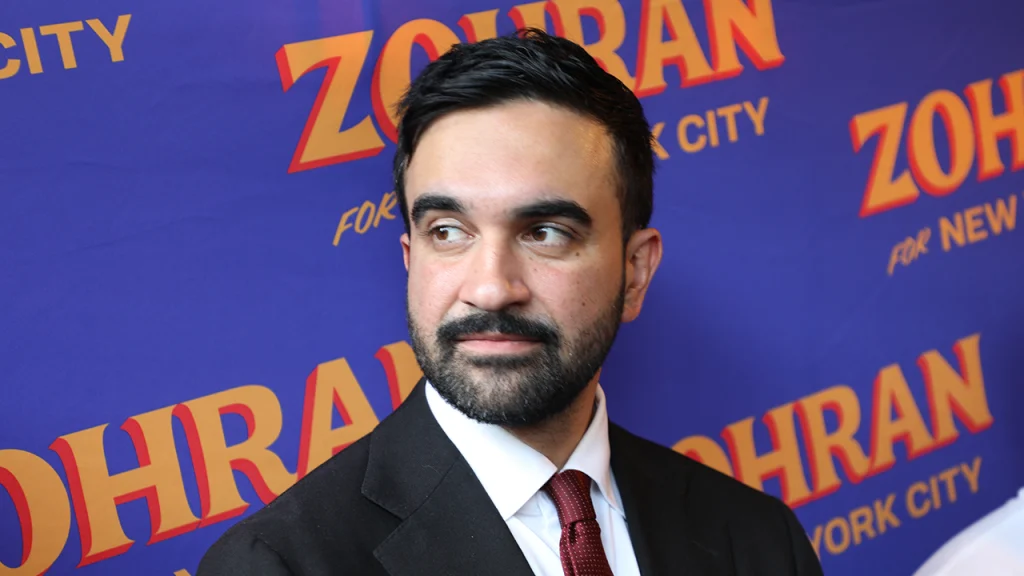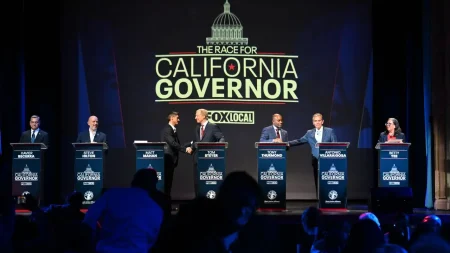Billionaire Heiress Donates to Socialist NYC Mayoral Candidate Mamdani Despite His Anti-Billionaire Stance
In a striking example of political paradox, socialist New York City mayoral candidate Zohran Mamdani, who has openly declared that billionaires shouldn’t exist, recently received substantial financial backing from the daughter of a billionaire hedge fund manager. Elizabeth Simons, daughter of the late Jamie Simons who founded Renaissance Technologies and amassed a fortune of $31.4 billion, donated $250,000 to New Yorkers for Lower Costs PAC, a super PAC aligned with Mamdani’s campaign. This contribution represents the largest single donation the PAC has received this election cycle, creating a notable contradiction between the candidate’s public rhetoric and the financial support powering his campaign. The situation highlights the complex relationship between progressive politics and wealth in American elections, where even candidates with anti-establishment platforms often benefit from the very systems they criticize.
Mamdani has built his campaign around addressing inequality and affordability in New York City, frequently positioning himself as a champion of working-class interests against what he characterizes as the “billionaire class.” Just months ago, he explicitly told NBC News, “I don’t think that we should have billionaires because, frankly, it is so much money in a moment of such inequality, and ultimately, what we need more of is equality across our city and across our state and across our country.” His campaign messaging consistently portrays billionaires as part of the problem facing everyday New Yorkers, with social media posts emphasizing how the city’s affordability crisis benefits the ultra-wealthy at the expense of ordinary citizens. This stance has been central to his appeal to progressive voters concerned about New York’s widening economic disparities.
The revelation about Simons’ donation has sparked immediate criticism, most notably from Mamdani’s opponent, former New York Governor Andrew Cuomo. Cuomo took to social media platform X to accuse Mamdani of hypocrisy, writing: “Congrats to you, @ZohranKMamdani for completing the holy trinity of hypocrisy: Eat the rich → Cash their PAC checks. Freeze the rent → Rich guy in affordable housing you don’t need. Defund the police → Armed guards worldwide… from the campaign trail to Uganda. You are what you pretend to fight.” The pointed criticism references not only the PAC donation but also touches on other controversies surrounding Mamdani’s campaign, suggesting a pattern of contradiction between the candidate’s public positions and private practices that could potentially undermine his credibility with voters.
Neither Mamdani’s campaign nor the New Yorkers for Lower Costs PAC responded to inquiries about whether they would return or denounce the funds, leaving questions about how the campaign reconciles its anti-billionaire rhetoric with accepting support derived from billionaire wealth. This silence is particularly notable given that super PACs operate independently from campaigns, giving Mamdani technical distance from the donation while still benefiting from its effects. The situation demonstrates the practical challenges faced by candidates who advocate for systemic economic change while operating within the existing campaign finance system, where large donations often play a decisive role in determining electoral viability regardless of a candidate’s ideological positions.
The contradiction is further amplified by Mamdani’s own criticism of Cuomo for accepting donations from billionaires. In June, Mamdani posted on social media that “We live in the most expensive city in the United States. Cuomo’s billionaire donors want it that way. But we have an agenda to make life affordable.” Similarly, in March, he celebrated his campaign’s grassroots appeal by stating, “We’re reaching New Yorkers who’ve been ignored by establishment politicians and crushed by the billionaire class. Our grassroots momentum will carry us over the finish line in June.” These statements, when contrasted with the $250,000 donation from a billionaire’s daughter to his supporting PAC, create a narrative dissonance that opponents are eager to exploit and that supporters may find difficult to reconcile.
This situation reflects broader tensions within progressive politics, where candidates who advocate for redistributive economic policies often face practical necessities of campaign financing in a system where wealth plays an outsized role. For New York voters, the incident raises questions about authenticity in political messaging and the extent to which candidates can challenge economic systems while benefiting from them. As the mayoral race continues, Mamdani faces the challenge of addressing this apparent contradiction while maintaining his appeal to voters drawn to his progressive platform. Meanwhile, the donation itself demonstrates how even wealth derived from the billionaire class can be directed toward candidates who critique the very existence of such wealth, illustrating the complex and sometimes contradictory relationships between money, politics, and ideology in contemporary American elections.













